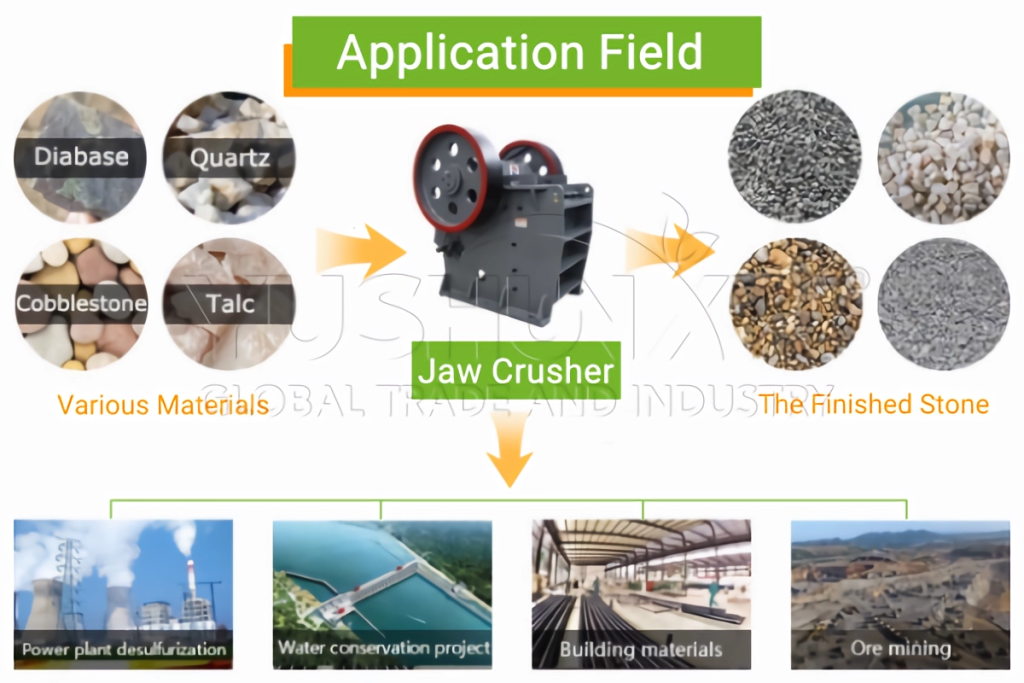Ore-based fertilizers play a crucial role in modern industry, offering unique mineral nutrients and characteristics that differ from conventional agricultural fertilizers. Understanding the impact of granulating machinery on the quality and consistency of mineral fertilizer granules is essential for manufacturers seeking to optimize production processes, control cost, and meet strict industry standards. The following analysis explores ore-based raw materials, their industry applications, and the main features of mineral fertilizer granulation solutions, emphasizing the influence of advanced machinery on the final product.
What Are the Common Raw Materials and Their Industrial Applications in Ore-Based Fertilizer Production?
Mineral fertilizers derive their value from a wide range of rock, mine, and ore materials, each suited to specific industry needs. For instance, rock phosphate remains a primary source for phosphate fertilizer manufacturing, crucial in chemical and industrial applications requiring high phosphorus content. Limestone serves the cement, steel, and environmental sectors as both a soil amendment and a neutralizing agent, making it a preferred choice in limestone fertilizer production solutions. Additionally, potash ores, such as sylvinite and carnallite, support the manufacturing of NPK fertilizer blends, which are vital for balanced nutrient supply in diverse industries.
Mining waste and by-products also find use in mineral organic fertilizer production lines and mine waste management projects, transforming potential pollutants into valuable granular products. Each mineral raw material requires specific processing to maximize efficiency, reduce contamination, and ensure consistent particle size and nutrient release. As a result, mineral fertilizer manufacturers must select the appropriate crushing, granulating, and screening equipment to match the unique characteristics and demands of their chosen ore or rock material.

How Do Granulating Machines Influence the Quality of Mineral Fertilizer Granules?
The choice of granulating machinery significantly affects the structure, size, and uniformity of ore-based fertilizer particles. Disc granulators, also known as pan granulation machines or pelletizers, remain the most popular solution for many mineral fertilizer processing plants. This equipment delivers flexible adjustment of rotation speed, disc angle, and moisture content, allowing for precise control over granule size and density. Operators in the bulk fertilizer blending plant industry often prefer disc granulators for their ability to handle a variety of fine mineral powders, from rock phosphate to ground limestone.
Other granulation solutions include rotary drum granulators, which ensure continuous production of large-output mineral pellets, and compacting granulators, suitable for dry powder ore and mineral blends. Each machine type comes equipped with durable linings, anti-corrosive materials, and automated feeding systems to reduce downtime and maintenance needs. The right granulating equipment minimizes dust, reduces agglomeration, and enhances the mechanical strength of finished particles, directly impacting the downstream handling, packaging, and application of mineral fertilizers in industrial sectors.
What Other Key Machines Support the Ore-Based Fertilizer Granulation Process?
Efficient ore-based fertilizer manufacturing requires a complete set of specialized machinery beyond the granulator itself. Ore fertilizer crusher machines, such as jaw rock crushers and Raymond mills, play a critical role in preparing raw mineral materials for granulation. These machines break down bulky mineral ore into fine, uniform particles, ensuring optimal granule formation and uniform nutrient distribution.
Screening equipment further refines the process by separating oversized or undersized particles, guaranteeing that only granules of the desired size move on to packaging or further processing. This step is especially important in the manufacturing of NPK fertilizer, rock phosphate fertilizer production, and mineral organic fertilizer production lines, where product quality and consistency remain top priorities. Together, these machines establish a streamlined workflow, reduce production waste, and promote safer, more efficient factory operations.

Conclusion
In summary, the selection and integration of advanced granulating machinery directly determine the quality, efficiency, and profitability of ore-based fertilizer production. From the careful choice of mineral raw materials to the use of precision granulators, crushers, and screening equipment, every component of the process plays a vital role in creating uniform, robust, and market-ready mineral fertilizer granules. Companies aiming to establish or upgrade their mineral fertilizer manufacturing capacity should seek professional equipment partners with proven expertise, such as Yushunxin, a professional fertilizer equipment manufacturer with deep experience in ore-based fertilizer solutions. By investing in the right machinery and process design, manufacturers can ensure consistent product quality, low operating costs, and strong competitiveness in the mineral fertilizer market. You can visit: https://www.mineralfertilizerproductionsolutions.com/product/disc-granulator-machine/